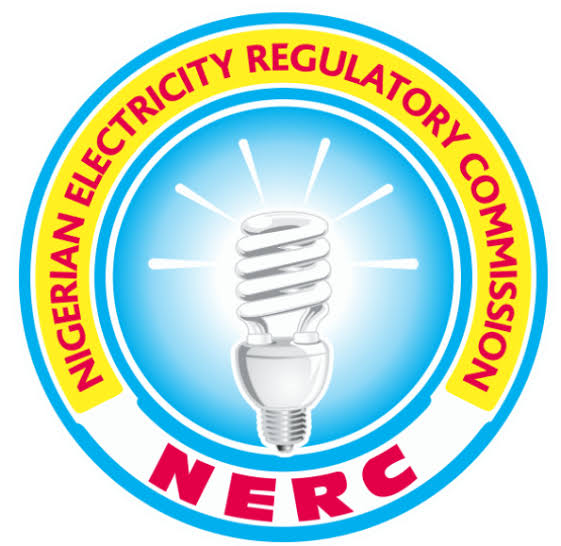
The Federal Government has affirmed that the launch of the state-of-the-art Supervisory Control and Data Acquisition (SCADA) system was a demonstration of its resolve to build a robust power sector that meets the needs of the present while being sustainable for the future.
Minister of Power, Chief Adebayo Adelabu, stated this while speaking during the demonstration of the new SCADA system at the TCN Substation in Gwagwalada on Wednesday.
SCADA is a cutting-edge technology designed to automate and manage the power grid more effectively.
It is used to enhance grid stability, reduce power outages, and improve energy efficiency.
Unfortunately, the nation’s power sector has been without a functional SCADA system since the introduction of DASA, the first non-computer-based SCADA system installed by the National Electric Power Authority (NEPA) in 1978.
Prior to the award of the $52 million contract in August 2022 to Messrs NARI-TECH/Electric Lt. Consortium for the rehabilitation of the current SCADA system, various attempts were made to enhance the critical infrastructure, including the one undertaken by the Siemens AG of Germany in 2004 and 2009, but the challenges persisted, thus making it very difficult to achieve grid stability.
As of May this year, the Transmission Company of Nigeria (TCN) announced that it recorded twenty (20) grid disturbances/system collapses in five (5) years due to the non-availability of functional SCADA systems.
Giving the breakdown, TCN said, between 2020 and May this year, it recorded fourteen total and six partial grid disturbances totalling twenty (20), which it said was better than the sixty-four total and twenty-one partial grid disturbances, totalling eighty-five (85) recorded between 2015 and 2019.
Speaking at the epoch-making event, the Minister said the initiative represents not just a technological upgrade but also symbolises the government’s unwavering commitment to enhancing the efficiency, reliability, and sustainability of power supply across the nation.
Adelabu who was represented by the Permanent Secretary, Ministry of Power, Engr. Emmanuel Nosike, said the initiative aligns seamlessly with the administration’s broader vision of achieving energy security and expanding access to electricity for all Nigerians, which is the primary objective of the Nigerian Electricity Transmission Access Project (NETAP).
He expressed delight that the SCADA system would empower the sector with real-time monitoring and control capabilities that are crucial for quick decision-making and effective management of the grid.
“The SCADA system will enable us to monitor the entire electricity network from a centralised location, thereby ensuring that we can respond promptly to outages, manage loads efficiently, and optimise the overall performance of our power systems.
“With features such as automated data collection, fault detection, and remote-controlled operations, we are laying the groundwork for a more resilient and responsive power sector.
“By implementing this advanced technology, we are taking a bold step towards addressing some of the issues holding the sector down,” the minister said.
He, therefore, urged all the players in the Nigerian Electricity Supply Industry (NESI) to embrace the opportunities the SCADA system offers.
“Let us leverage this technology to enhance our operational capabilities and improve service delivery to our citizens,” he said.
Earlier, in his Opening Remarks, the Managing Director of the Transmission Company of Nigeria (TCN), Engr. Sule Abdulaziz, stated that the fact that the previously deployed SCADA/EMS projects did not achieve the intended objectives should not be seen as a failure, but rather should be seen as valuable lessons and a guide to improving the new deployment of this commendable project.
“Some may call them failed projects, but it all depends on how one defines failure. I would not label the previous efforts as failures; rather, I see them as valuable lessons and a guide to improving the new deployment of this commendable project,” he said.
Engr. Abdulaziz said, “At the start of the project implementation, TCN management set up a team of senior staff to look into the reasons for the challenges of previous attempts with the aim of avoiding those mistakes this time around.
“This team provided reasonable recommendations, which have been implemented before and during the project’s execution’, he said.
According to him, the new SCADA would lead to improved power quality, reliability, and stability, which would encourage large industries that previously avoided the grid due to poor power quality to connect, thereby increasing revenue from the electricity market.
He said the utilisation of the SCADA EMS tools would also improve grid performance and reduce transmission losses, saving the sector millions of naira daily.
He commended the TCN World Bank Project Management Unit for their doggedness and determination to push the project to this level in spite of the challenges faced during the execution.
On his part, the Country Director of the World Bank, Dr. Ndiame Diop, said the launch of the SCADA system would revolutionise the Nigerian power sector.
Dr. Diop, who was represented at the event by Bunu Bukar, expressed the World Bank’s commitment to supporting the nation’s power sector beyond the SCADA system.
He disclosed that the project, which was originally scheduled to end in December, may be extended by six months; therefore, he appealed for the support of all the stakeholders for the timely delivery of the project.
Other projects to complement the rehabilitation of the SCADA system in the transmission network, according to TCN, include “refurbishment and extension of the Regional Control Centre at Benin and Ikeja NTP-2. These buildings are to house the new SCADA-EMS facility to be provided at the regional control centers. The project is currently at 90% completion.
“Digitisation of 26No. Old Transmission Substations. The project is expected to upgrade the protection, control, and surveillance systems at the 26No. Transmission Substations in order to ensure that the substations are compatible with the operation of the new SCADA system to be provided under TRGC. The project is at about 40% completion.
“Construction of two National Control Centres (NCC) at Gwagwalada and Osogbo that would be quipped with the state-of-the-art equipment from the rehabilitation project.”






